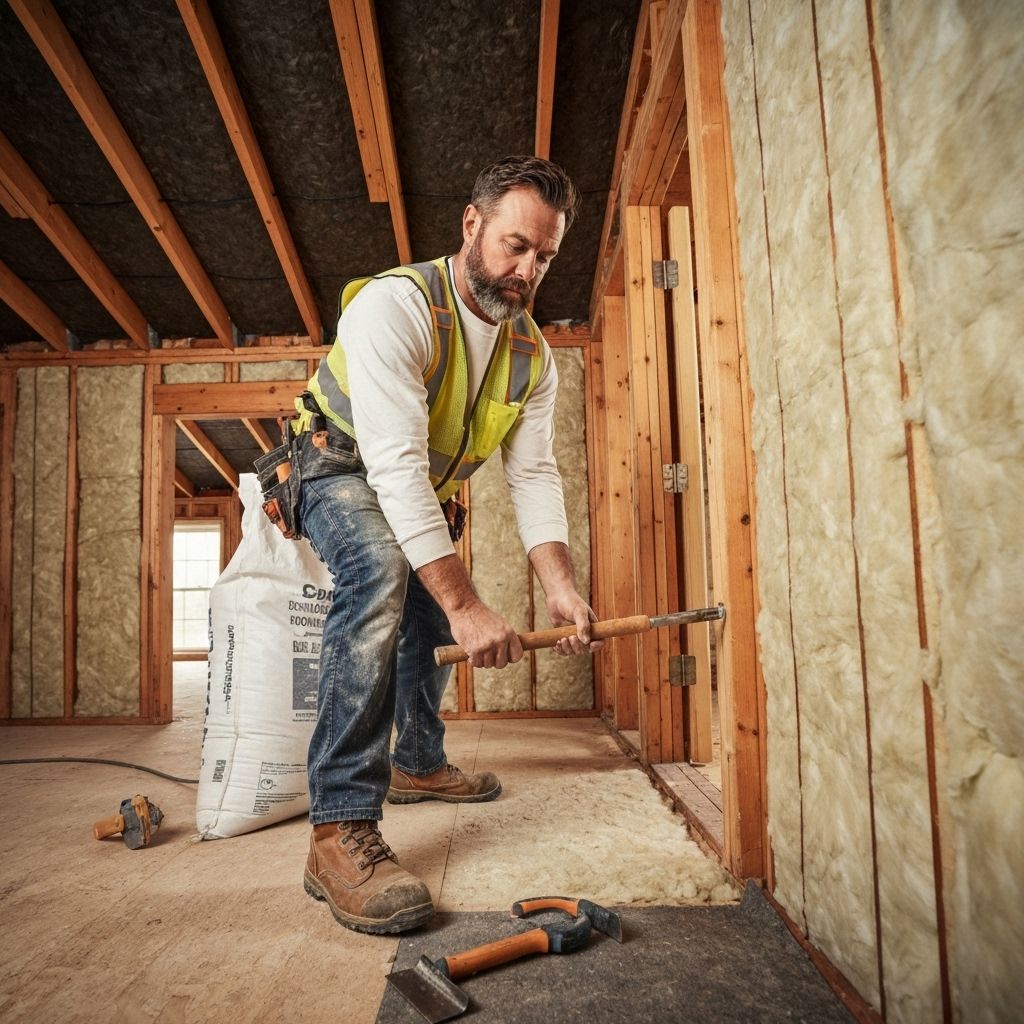The Art of Insulation: Designing a Comfortable Retreat in Your Living Space

As the seasons change, the coziness of our living spaces turns into an essential focus. No matter if it's the frigid temperatures of winter versus the sweltering heat of summer, proper insulation is vital in establishing a comfortable haven. It boosts coziness and also increases energy efficiency, cut down on energy expenses, and even elevate your home's value. With many different insulation types to choose from, figuring out the best option for your house might feel overwhelming.
This extensive guide will explore the intricacies of insulation, covering everything from the basics of R-values to advanced techniques for air sealing and soundproofing. We will take a look at standard insulation materials with their advantages and disadvantages, help you identify indicators that your insulation might require improvement, and offer useful tips for do-it-yourself projects. In conclusion, you will gain the knowledge with the insight required to turn your home into a cozy sanctuary, ensuring that your home remains comfortable all year long and maintaining a friendly approach to your finances and the planet.
Understanding Home Insulation
Residential insulation plays a vital role in maintaining a cozy indoor environment and reducing energy costs. It works by delaying the flow of heat between your home and the outside elements. By efficiently trapping warm air in during winter and keeping it out during the warmer months, insulation creates a balanced atmosphere that not only improves comfort but also reduces the workload on your heating and cooling systems.
Various types of insulation materials are accessible, each with its particular properties and benefits. Common options include fiberglass, cellulose, sprayed polyurethane foam, and rigid insulation. Each material has distinct R-values, which measure its thermal resistance. Knowing these values is essential when deciding on the right insulation for your home, as it can greatly impact energy efficiency and comfort levels.
In addition to thermal performance, proper insulation aids to soundproofing and indoor air quality. insulation companies helps reduce the transmission of noise from external sources and between areas, creating a quieter living space. Moreover, effective insulation can prevent moisture buildup, minimizing the risk of mold and boosting overall air quality. Comprehending these factors of home insulation will allow you to make informed decisions regarding your home's ease and energy efficiency.
Insulation Methods and Materials
Choosing the best insulation technique and material is vital to achieving ideal energy efficiency in your home. Typical insulation materials consist of glass wool, polyurethane board, spray-applied foam, and cellulose, each with its distinct properties. Fiberglass rolls are common for their simplicity in setup, while loose-fill cellulose delivers excellent insulating coverage and is an sustainable option. Spray foam insulation, though more expensive, establishes a strong air seal and is well-suited for unusually shaped areas.

When deciding on insulation, consider R-values, which reflect thermal resistance. attic insulation -value shows better insulating performance. Grasping R-values helps you choose materials based on your climate and specific needs in areas such as attics, walls, and basements. Furthermore, it’s crucial to adhere to manufacturer guidelines and local building codes when installing insulation to ensure protection and effectiveness.
Beyond selection, applying proper installation techniques is essential for maximizing insulation advantages. Techniques encompass air sealing gaps before installation, layering different types of insulation where suitable, and ensuring there are adequate vapor barriers to prevent moisture build-up. By merging the suitable materials with efficient methods, homeowners can enjoy increased comfort, reduced energy costs, and improved home value.
Benefits and Impact of Insulation
Investing in adequate house insulation offers significant advantages that extend beyond simple temperature control. A key benefits is improved energy performance, which translates to lower utility bills. By efficiently insulating your home, it's possible to reduce the workload on your heating and cooling systems, allowing them to operate more efficiently. This not only cut expenses but also reduces your environmental impact by cutting energy consumption.
In addition to energy savings, insulation plays a crucial role in improving indoor comfort. It assists maintain a uniform temperature throughout your home, avoiding drafts and cold spots during winter and holding the space more comfortable during summer months. With Insulation contractor , your living environment is more enjoyable, enabling you to unwind and feel comfortable no matter the weather outside.
Lastly, insulation can significantly increase your home's value. Potential homebuyers are often more attracted to energy-efficient properties that include modern insulation solutions, that offer lower operating costs and improved comfort. As a result, deciding to upgrade your insulation not only improves your quality of life but also situates your home advantageously in the real estate market, rendering it a wise investment for the future.
